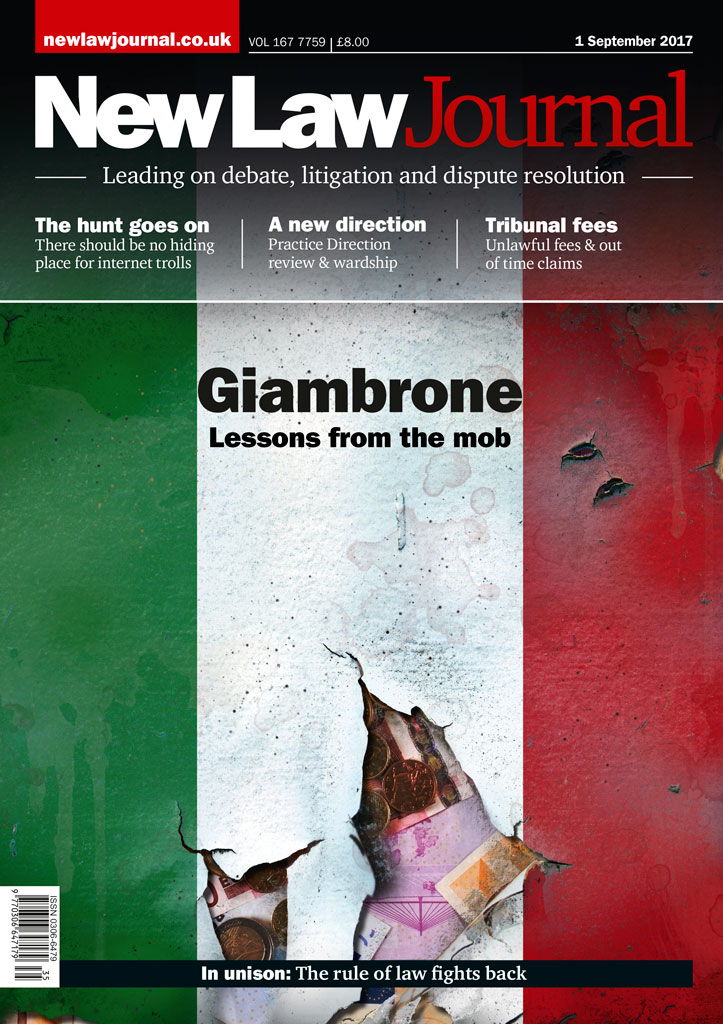
Karen Moss considers the evolution of discrimination arising from disability under s 15 of the Equality Act 2010
Do police need court permission to interview a ward of court, asks David Burrows
There should be no hiding place for internet trolls, insists Peter Thompson QC
Family and civil lawyers have welcomed government calls for a cross-border civil judicial co-operation framework post Brexit
Motor insurers must bear the risk of policyholder fraud, says Nicholas Bevan
Gus Baker & Ruth Kennedy ask whether claimants who could not afford to pay employment tribunal fees could now bring claims out of time
MOVERS & SHAKERS

Carey Olsen—Kim Paiva
Group partner joins Guernsey banking and finance practice
.tmb-mov69x69.jpg?sfvrsn=16d9dd3d_1)
Morgan Lewis—Kat Gibson
London labour and employment team announces partner hire

Foot Anstey McKees—Chris Milligan & Michael Kelly
Double partner appointment marks Belfast expansion









